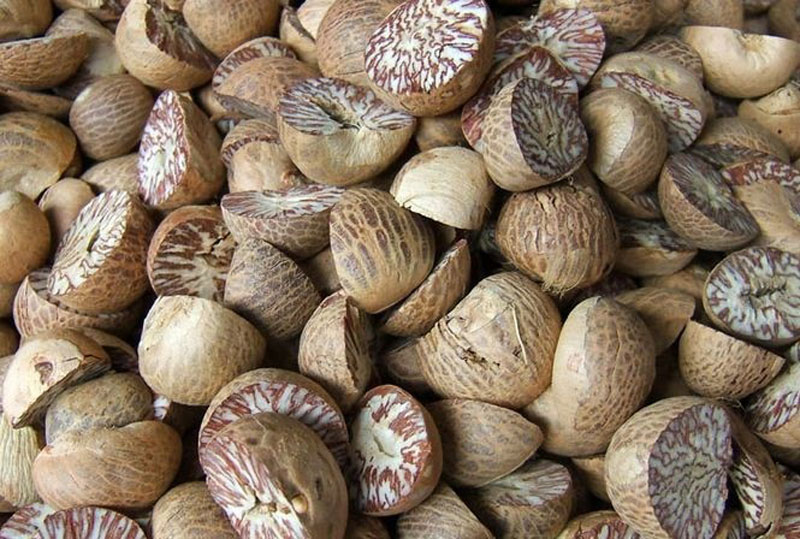Sunday Feb 22, 2026
Sunday Feb 22, 2026
Monday, 21 October 2024 03:21 - - {{hitsCtrl.values.hits}}

By Charumini de Silva
The Spices and Allied Products Producers’ and Traders’ Association (SAPPTA) has raised concerns about the negative impacts of recent Government policies related to areca nut imports.
In a letter addressed to President Anura Kumara Dissanayake, the SAPPTA has outlined far-reaching consequences of the Government’s decision to re-issue import licences for areca nut, leading to a crisis in the domestic market and jeopardising crucial trade relations with India.
According to the SAPPTA, Sri Lankan farmers have long benefitted from the India-Sri Lanka Free Trade Agreement (ISFTA) and the South Asia Free Trade Agreement (SAFTA), which provide preferential tariffs on spices and areca nuts exported to India. Under these agreements, Sri Lankan areca nuts have been subject to zero tariffs, while India imposes a 108% tariff on areca nuts from other countries. However, to qualify for these benefits, imports must undergo value addition of at least 35%.
The SAPPTA has voiced alarm over the Government’s decision, made through Gazette No. 2387/35 on 6 June 2024, to allow a single company, with no prior experience in the sector, to import areca nuts. This, they claim, has disrupted trade and resulted in severe consequences for local farmers and traders.
Key issues highlighted in the letter include a significant drop in the price of local areca nut from Rs. 1,400 per kilogram to around Rs. 600, leading to an estimated Rs. 10 billion annual loss for Sri Lankan farmers. Additionally, the reintroduction of imports has caused disruptions at Indian ports with many containers facing clearance issues, exacerbating the crisis.
One of the most pressing concerns raised by the SAPPTA is the allegation that the volume of areca nuts being exported from Sri Lanka exceeds the country’s total crop, suggesting that smuggling may be occurring. India has raised concerns about the potential re-export of areca nuts from other countries, masked as Sri Lankan produce, which could lead to further restrictions on Sri Lankan exports.
Furthermore, the SAPPTA warns that the situation could result in a complete ban on Sri Lankan areca nuts by India, which currently accounts for 95% of Sri Lanka’s areca nut exports. Such a ban, they estimate, could lead to losses around Rs. 20-25 billion ($ 60-80 million), severely affecting millions of Sri Lankan farmers.
The SAPPTA has urged the Government to suspend the import of areca nuts and conduct a thorough investigation into the re-export practices.
They stressed the need for swift action to protect Sri Lanka’s agricultural sector and maintain healthy trade relations with India, warning that failure to do so could have devastating consequences for the country’s farmers.
This issue, which echoes past crises involving the smuggling of pepper and other spices, threatens to undermine the trust between Sri Lanka and India, both economically, if left unresolved.